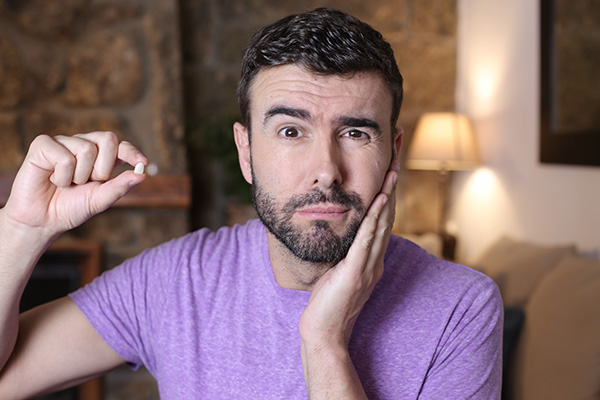 General dentistry practitioners know that loose teeth in youngsters are common and cause little worry since the problem is with the "baby teeth." If you have a loose tooth or one of your children has a loose adult tooth, you may need to visit the general dentistry office to save it. Continue reading to discover tips for handling and treating a loose tooth.
General dentistry practitioners know that loose teeth in youngsters are common and cause little worry since the problem is with the "baby teeth." If you have a loose tooth or one of your children has a loose adult tooth, you may need to visit the general dentistry office to save it. Continue reading to discover tips for handling and treating a loose tooth.
Treating a loose tooth
Loose adult teeth may be caused by many issues such as periodontal disease, teeth grinding (bruxism), or traumatic injuries such as those sustained in contact sports or from falls. Fortunately, if loose teeth are repaired early enough, saving them is possible. The following are helpful tips for treating a loose tooth:
Avoid touching it
Patients need to ensure a loose tooth that is still in its socket does not fall out. It is considerably more difficult to treat the tooth if it loosens too much or falls out completely. Until a dental appointment is possible, patients should avoid disturbing the tooth with the tongue, moving it with fingers, or eating items that may stick to the tooth and cause further loosening.
Maintain a clean mouth
It might be difficult to clean a loose tooth properly until a dentist restores it. Nevertheless, since the loose tooth is vulnerable to infections, patients should try to remove any debris or loose food particles as much as possible. This may be accomplished by gently rinsing the mouth with warm water.
Book an appointment with the dentist as soon as possible
Only a qualified dentist can repair the loose tooth completely. So, patients need to make an appointment with a dentist as soon as possible – ideally within 24 hours of discovering the issue – to save their teeth and prevent a total loss.
A dental professional can handle a loose tooth with many methods, including:
Splinting - Splinting involves placing a dental crown on the afflicted tooth and adjacent teeth and manufacturing a "splint" that connects them. This technique ensures a firm grip and prevents the affected tooth from moving.
Periodontal therapy - If the dentist discovers that the loose tooth results from gingivitis or more severe periodontal disease, they will perform scaling and root planing to eliminate plaque and tartar and restore healthy gums. The treatment may also entail gum grafting if the gum tissues have deteriorated considerably.
Tooth extraction and replacement – This is usually only necessary in extreme situations or when a patient fails to see the dentist for an extended length of time. The tooth that is damaged may be extracted and replaced with a dental implant. Although this operation is expensive, it will offer a permanent replacement that looks, feels, and operates just like the natural tooth.
In conclusion
If you or your child has a loose tooth, schedule an appointment with a dentist immediately. During a visit to the general dentistry office, the dentist will advise patients on the best treatment based on their specific situation.
Request an appointment or call TJ Family & Implant Dentistry PLLC at 979-721-9410 for an appointment in our Bryan office.
Related Posts
A general dentistry clinic can provide treatments for a knocked-out tooth. This type of dental injury often happens because of a strong impact on the face. It can be from a fight, a vehicular accident, or a sports injury. If you want to know if a general dentistry clinic can restore your dislodged or knocked-out…
Fluoride is commonly used in general dentistry to reduce the risk of tooth decay and strengthen enamel that is weakened from acidic attacks that can occur when food particles and bacteria combine in the mouth. This article discusses how and when a general dentist might recommend fluoride for patients.Fluoride can be used for preventive purposes…
General dentistry helps you to deal with issues like toothaches. Toothaches are your brain’s way of telling you that there is something wrong with a tooth. It can be caused by things like tooth decay, damage to a tooth’s structures, or infection. A mild toothache that goes away on its own is often not a…
